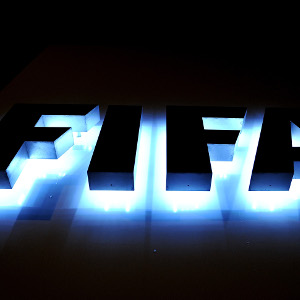On February 26, football’s world governing body, Fifa, holds its second Congress in less than eight months to elect a new president following the resignation and subsequent banning of Sepp Blatter in the wake of corruption scandals.
Only two men have held the office since 1974, but a record five candidates are competing on Friday for the votes of 207 of Fifa’s 209 member associations. Two associations are currently suspended.
Following is a brief history of the Fifa presidency:
PARIS, 1904
Fifa’s seven founding members – Belgium, Denmark, France, the Netherlands, Spain, Sweden and Switzerland – unanimously elected Frenchman Robert Guerin as FIFA’s first president.
BERNE, 1906 Daniel Burley Woolfall became the first of three Englishmen to hold the position. He helped to standardise the rules of the game internationally and to organise the soccer tournament at the 1908 London Olympics. He died in 1918, and Carl Anton Hirschmann of the Netherlands took over as interim president.
ANTWERP, 1920
After the upheavals of World War One, a provisional board was elected with Frenchman Jules Rimet as its chairman. Member associations then formally elected him Fifa president by postal vote, and he took office in 1921. Rimet oversaw the birth of the World Cup in 1930 and held the position for 33 years, the longest of any president.
BERNE, 1954
Rodolphe Seeldrayers of Belgium succeeded Rimet, but he died in office just over a year later. Ernst Thommen of Switzerland took over as acting president.
LISBON, 1956
Arthur Drewry of England was elected. He died in office in 1961.
LONDON, 1961
Another Englishman, Stanley Rous, was elected at an extraordinary Congress.
FRANKFURT, 1974
Rous was beaten in an election by Brazil’s Joao Havelange, who became Fifa’s first president from outside Europe, securing votes by promising funding and World Cup places to Asian and African countries. It was the moment the modern Fifa was born.
Havelange never faced a challenge to his presidency, standing unopposed for five straight terms until he eventually retired in 1998, aged 82.
PARIS, 1998
Blatter, Fifa’s secretary general, defeated Lennart Johansson, president of the European soccer federation Uefa, after a fierce four-month election campaign.
SEOUL, 2002
Blatter was challenged by Issa Hayatou of Cameroon, president of the African confederation (CAF).
Shortly before the election, 11 Fifa Executive Committee members including Secretary General Michel Zen-Ruffinen filed a formal legal complaint in Switzerland accusing Blatter of an abuse of power and misuse of funds.
Blatter won the vote nevertheless, defeating Hayatou by 139 votes to 56. Zen-Ruffinen left his post and the complaint was withdrawn.
ZURICH, 2007
Blatter was re-elected unchallenged.
ZURICH, 2011
Blatter was challenged by Qatari Mohamed Bin Hammam, the president of the Asian confederation (AFC) who had supported him against Hayatou in 2002.
A week before the election, Bin Hammam was accused of offering bribes for votes at a meeting of Caribbean delegates in Trinidad and withdrew his candidacy, leaving Blatter to be re-elected unopposed, although a formal vote was still held. Bin Hammam was subsequently banned from football for life.
ZURICH, 2015
Two days before the election, American and Swiss authorities arrested a number of soccer officials on suspicion of corruption, some of them Fifa figures gathered in Zurich for the Congress, plucked in a dawn raid from the luxury hotel where they were staying.
It was the start of the crisis that has led to this week’s Congress and the vote for a new president.
Prince Ali Bin Al-Hussein of Jordan polled 73 votes to Blatter’s 133 as the Swiss secured a fifth term in office. But four days later, the pressure from the growing scandal prompted Blatter to announce that he was stepping down. In December, Fifa’s Ethics Committee found him guilty of ethics violations and banned him from soccer for eight years.
Hayatou, the senior Fifa vice-president, has been acting as interim president.
Additional reporting by reuters
Ex- CAF Media Expert. An expert on African football with over 15 years experience ,always with an ear to the ground with indepth knowledge of the game. I have worked for top publications including 7 years at www.supersport.com until i founded www.soka25east.com to quench the thirst of football lovers across the continent. I have trained young upcoming journalists who are now a voice in African football.I have covered World Cup,AFCON,CHAN,Champions League,Confederations Cup,Cecafa,Cosafa,Wafu and many other football tournaments across the World. Founder Football Africa Arena(FAA),Founder www.afrisportdigital.com



CAF Confederation Cup
Simba book final spot in CAF Confederation cup

CAF Confederation Cup
Simba book final spot in CAF Confederation cup
Must See
-


AFRICA
/ 4 years agoSierra Leone FA President Isha Johansen endorses Patrice Motsepe for CAF President
Sierra Leone FA President who also doubles up as CAF Executive Council member Madam...
-


Football
/ 5 years agoIT JUST CAN NOT BE – AN AFRICA FULL OF MORONS?
By John De Mathews, There is an eerie silence around Africa, and it is...














